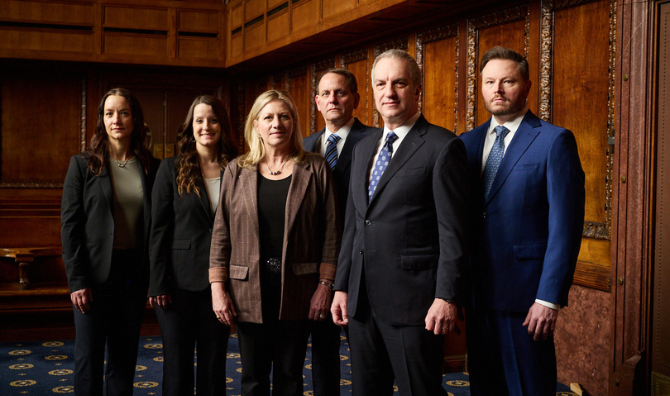If you or a loved one has suffered a spinal cord injury and you suspect a medical mistake may have played a role, it is important to consult with an experienced attorney immediately.
Spinal cord injuries can result in paralysis in the form of paraplegia (from the waist down) or quadriplegia (from the neck down), causing victims to rely upon extensive physical therapy, adaptive equipment, and modified living conditions. Pursuing a medical malpractice claim can help you obtain the resources you need to pay for your treatment and live a fulfilling life.
At The Becker Law Firm, our spinal cord injury attorneys in Ohio are committed to helping people who have suffered severe spinal cord damage and other life-changing injuries, such as paralysis, as a result of medical malpractice. Our legal team has the experience and resources to handle complex medical negligence cases involving catastrophic injury and wrongful death.
Contact our team at The Becker Law Firm to schedule a free, no-obligation consultation. We can be reached online or by phone at 216-480-4620.
How Medical Errors and Mistakes Can Lead to Spinal Cord Damage
In some cases, a spinal cord injury cannot be blamed on anyone. Often, however, our detailed investigation reveals mistakes on the part of physicians, hospitals, and other parties that resulted in harm to the patient. There are a number of ways in which preventable medical mistakes can cause a patient to sustain a spinal cord injury that results in paraplegia or quadriplegia.
Situations in which medical malpractice can lead to a spinal cord injury include:
- Intubation errors (the insertion of a breathing tube that causes damage to the spinal cord)
- The incorrect positioning of a patient during surgery
- Failure to immobilize the spine after an accident
- Failure to properly monitor the spine during surgery
- Chiropractic malpractice, including improper spine manipulation
- Misdiagnosis or delayed diagnosis of a disease that results in spinal cord damage
- Interruption of blood flow to the brain or spinal cord during a medical procedure
- Surgical errors during brain or spinal cord procedures
While not all paralysis injuries sustained in a hospital are the result of medical malpractice, in some cases, we find that the injury could have been prevented if the doctors or hospital staff had followed standard procedures designed to keep patients safe. Our attorneys thoroughly review the facts of each case to determine how negligence played a role in each client’s injuries.
Types of Compensation in a Spinal Cord Injury Claim
In a spinal cord injury claim, you may be eligible for various types of compensation, including:
- Medical Costs: Cost covers hospital visits, surgical procedures, rehabilitation, and ongoing medical treatments.
- Lost Wages: Compensation for income lost during recovery or due to the inability to work.
- Future Earnings: Reimbursement for potential future income loss if the injury impairs your ability to work long-term.
- Pain and Suffering: Payment for the physical discomfort and emotional anguish experienced due to the injury.
- Loss of Quality of Life: Payment for the diminished ability to engage in everyday activities and personal interests.
- Home Modifications: Costs for making necessary changes to your home to accommodate your physical needs.
- Assistive Devices: Expenses for specialized equipment such as wheelchairs and prosthetics.
What is the Statute of Limitations for a Spinal Cord Injury Claim in Ohio?
In Ohio, you typically have two years from the date of the injury to file a personal injury claim, including those related to spinal cord injuries. It is essential to adhere to this timeframe, as failing to do so may prevent you from pursuing compensation through legal channels.
Contact Us for a Free Consultation
At The Becker Law Firm, we strive to recover the full, fair compensation you are owed for your pain, suffering, and other damages. Our Ohio spinal cord injury lawyers understand the vast physical, emotional, and financial toll that these types of injuries have on both victims and families. To find out how we can help you pursue justice, contact us today and request a free consultation.
Call 216-480-4620 or submit a confidential contact form to get started.



